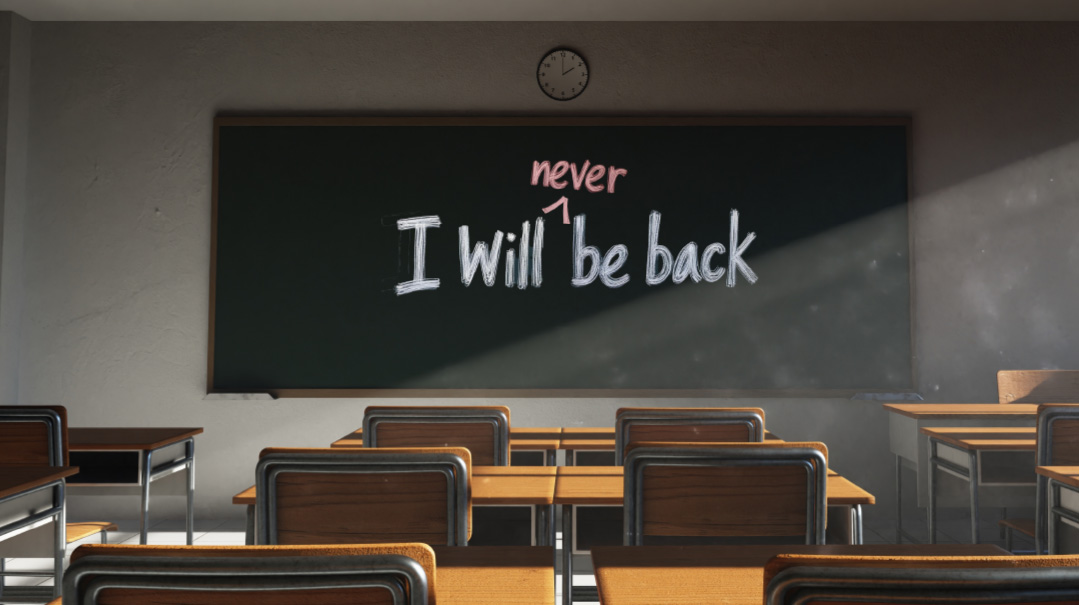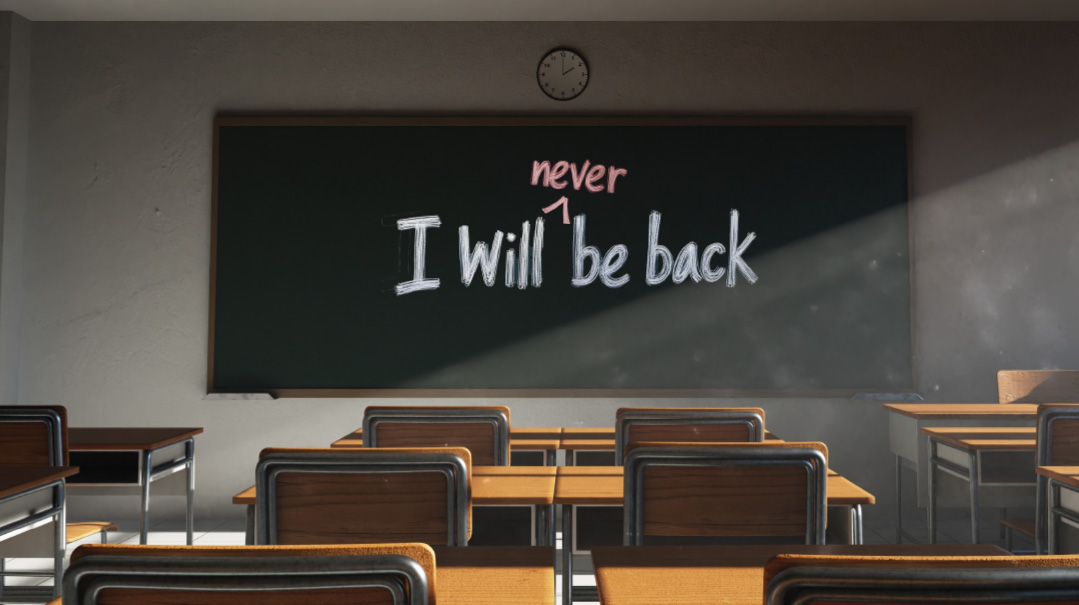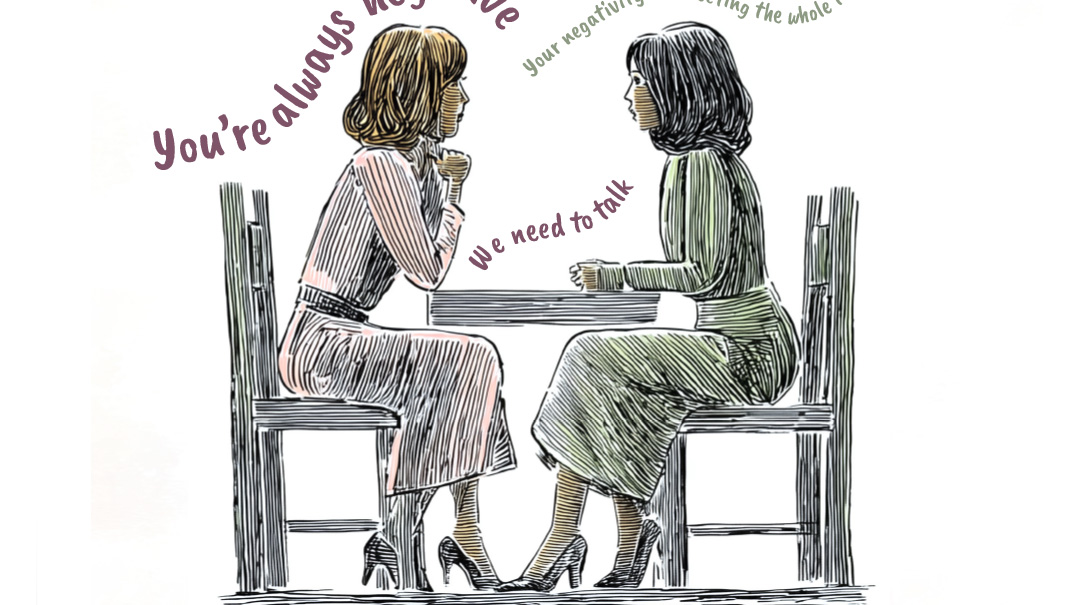Why I’m Not Looking for a Metzuyan for My Daughter
| June 9, 2024As time went on, I realized that a “top girl” doesn’t necessarily have the right qualities to support and encourage a “top boy” in his chosen path

Even when I was little, I knew that I was special. My parents didn’t use words to convey this, but they made it very clear that our family was Different and their kids were Gifted and they expected very big things from us.
To some readers, this might sound like the start of a fairytale. Or maybe a handbook to healthy parenting. Isn’t it wonderful to know that your parents consider you exceptional?
The slight issue is that this belief comes with a corollary: that your job is to spend your entire life proving them right.
Every report card, every school performance, every graduation, every application to school, yeshivah, or seminary carried extra weight. Would our family be able to boast another valedictorian? Would another child take center stage with confidence and grace? Would another son soon be packing for Brisk, another daughter for BJJ?
Most of the time we satisfied expectations, proving our worth and cementing our reputations. Our parents sought suitably exceptional spouses for us, confident that we’d move forward on the trajectory of exceptionalism and make them proud.
And then life happened.
After I got married, I learned the jarring lesson that acing school has little to do with acing homemaking. Later on, I learned that it has even less to do with staying calm, centered, and loving when you have a few babies and haven’t slept through the night in years. And as time went on, I realized that a “top girl” doesn’t necessarily have the right qualities to support and encourage a “top boy” in his chosen path. Turns out, the criteria we use to measure our elites have very little connection to the day-in, day-out pressures of actual life.
So if I was really good at boiling down the differences between Rashi, Ramban, Ohr HaChaim, and Kli Yakar on a single pasuk, or exceptionally talented at planning and pulling off massive school events, or even admirably consistent at volunteering in the nursing home back when I was an Exceptional young lady — but not particularly good at containing my temper when my little ones dumped out all their toys again, or not exceptionally talented at having all my cooking, cleaning, and laundry done in time for Shabbos, or not so consistent when it came to staying upbeat and positive through the rigors of budgeting and pregnancy and Pesach cleaning, where did that leave me? I was definitely not a Top Mother.
Some of my siblings went through other experiences that left them groping, too. The one who had been predicted to be a future maggid shiur, at the very least, woke up a few years into kollel and realized he would only feel fully satisfied and stimulated in a fast-moving business environment. Another top learner eventually found a very average job. A sister took endless pride in her husband, the future marbitz Torah — but his first rebbi job was such a disaster that he immediately enrolled in a real estate course.
These realizations were very sobering, maybe even depressing, because we’d been trained by our parents — but also, let’s be honest, by our society — to believe that it’s either metzuyan or mediocre, with nothing in between.
Maybe my parents were more obvious than most in their burning belief that their children were exceptional. But I think that a lot of frum Jews have gotten the message that the only honorable option is the metzuyan option. Am I the only one who’s noticed that more yeshivos, schools, and seminaries are aiming for only the higher achievers? Am I the only who hears an implausible number of people describing their shidduch-aged children as “top learners” or “looking for a top boy”? Am I the only one who senses that vague disdain as people mention certain yeshivos or certain “types,” with the unspoken but very loud implication that they are mediocre?
If you’re attuned to this “metzuyan or bust” mentality, then you’ve probably noticed something else: that hollow tone in friends’ voices as they realize their golden dreams of being mashpi’im or role models or top-tier bnei Torah have fizzled down to the draining daily struggle of being just one of many trying to get through the day, the week, the month.
No one told us, back then, just how hard it is to raise healthy children. How much uncertainty and humility the process would evoke. How much thought and effort and constant recalibration we’d have to invest in marriage, in running a functional home, in keeping track of every child’s development and friendships and carpooling schedules and social struggles.
It took life to teach us that most of us are not going to be the “top” — not in the beis medrash, on the dais of tzedakah patrons, or in the annals of communal movers-and-shakers. And most of us will not produce families of “top” children.
Hopefully, though, most of us will have those moments when we look at what we’re building and feel ownership, satisfaction, even pride. We’ll finish a truly elevated Pesach Seder or watch the older kids helping out the younger ones on a family hiking trip or notice how the impossible little monsters who used to turn the house upside down are now helping us whip it into shape for Shabbos — and we’ll realize that our very average family is actually very special.
And with time, we will come to terms with a truism we didn’t necessarily learn in school: that being in the middle doesn’t mean being mediocre. That you don’t have to be “top” to be healthy and thriving. That leading and maintaining a normal, functional, not-top family is actually an extraordinarily demanding task, something that takes wisdom, resilience, flexibility, tefillah, and tears.
Most of all: That just because you, your kids, your family — the edifice that is your life’s work — don’t rank very highly on the metzuyan scale doesn’t mean you’re not worthy.
Back when I was a very young mother, I watched an exchange on the park bench. A little boy dazzled an older woman with a recital of the Chumash he’d learned that day. “Wow, a future gadol b’Yisrael!” the woman complimented the little boy’s mother.
The mother lowered her eyes modestly. “That’s what we daven for, every day.”
I kept turning those words over in my mind. They bothered me. It just so happens that this particular mother had a zeide who was an actual gadol hador. So maybe, in her family, this is the type of thing you daven for — a logically attainable goal. Or maybe every Jewish mother from every type of family can daven for her child to be a gadol. Or maybe we should daven for our children to achieve their potential, but not necessarily aim for them to become gedolim. Or maybe we can hold different meanings of greatness, not all of which involve the position of a manhig, posek, or tzadeikes hador?
Many years ago, one of my high school teachers devoted an entire lesson to the question of whether the Jewish people are actually smarter than the other nations. High school girls tend to get passionately and emotionally involved in these kinds of debates. We talked about the incredible minds of our leading talmidei chachamim, of Nobel Prize winners and Jewish doctors, of literate Jewish children even during the Dark Ages, and a culture of reading, recording, knowing. And it was all true.
But, our teacher told us, even if the Jewish people wouldn’t be particularly smart or exceptionally learned, our identity would remain unchanged. “What makes us special isn’t that we’re smarter,” she said. “It’s that we are Chosen.”
This is what I, as a child, needed to hear. And it’s what I today, as a mother, want my children to know. They are special. Unbelievably and undeniably special.
Not because they’re gifted and talented and adorable and knowledgeable (let’s be honest, there are times when they are mainly imperfect and mischievous and unfocused and unproductive and destructive and ill-mannered). But because they were chosen by Hashem to be a part of His favored people, and chosen by Hashem to be my children, the focus of my dreams and hopes and love.
They don’t have to be “top” to be worthy and they don’t have to be metzuyanim to be invaluable. They can inhabit the middle — along with most of Klal Yisrael — and they will likely have to strain every spiritual and physical muscle they have to build functional homes. Strong, solid, healthy, not-top homes inhabited by strong, solid, healthy, not-top and extremely beloved people. The people who are the mainstay of our nation.
Recently my oldest daughter started shidduchim. She’s a wonderful young woman with abundant spiritual qualities, interpersonal savvy, and a lovely nature.
“So, what should I tell everyone you’re looking for?” my mother asked.
“A nice normal boy from a nice normal family,” I said.
“Normal?” she responded in a tone somewhere between disappointment and distaste. “Not outstanding? Not exceptional? You have a great daughter and a beautiful family. Are you sure?”
“Yes,” I said firmly. “I’m sure.”
(Originally featured in Family First, Issue 897)
Oops! We could not locate your form.







